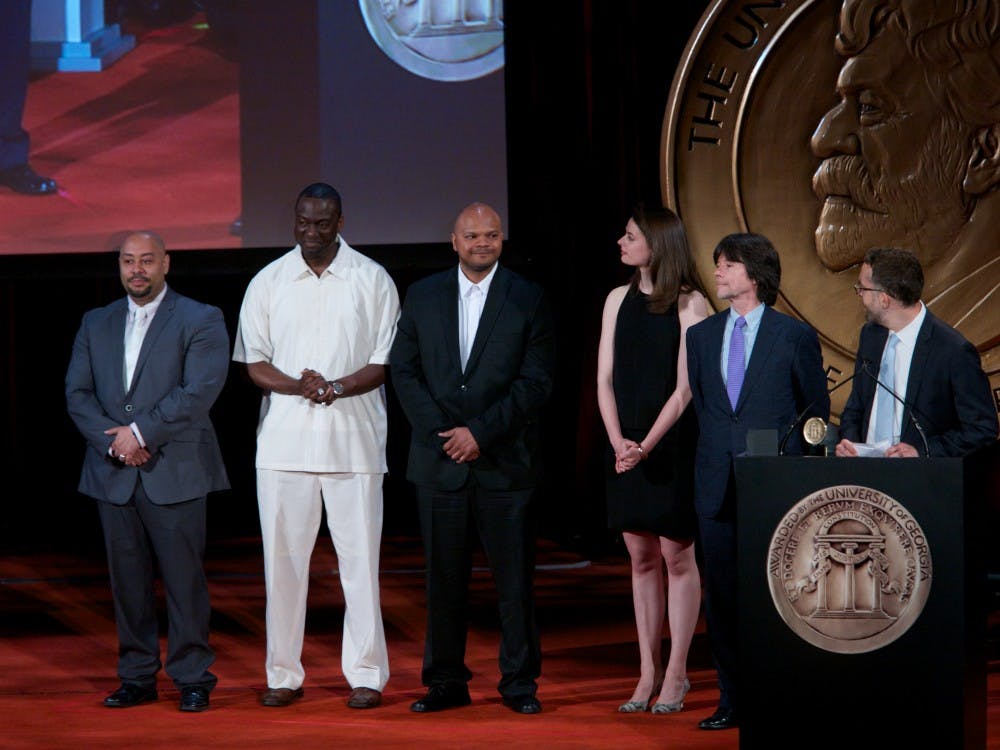Yusef Salaam and Raymond Santana were wrongfully convicted in 1989, along with three other young men, of the assault and rape of a woman who was jogging in Central Park. The five men are now known as the Exonerated Five.
Now, 17 years after they were exonerated, Salaam and Santana are coming to Duke to share their stories in two events next week. The first is a moderated event that will take place Monday, Sept. 2 from 7 p.m. to 8:30 p.m. in Page Auditorium, and the second conversation will occur the next day at 12:30 p.m. in the Duke Law School.
Mark Anthony Neal, James B. Duke professor of African and African American studies, will moderate the Monday talk, and Brandon Garrett, L. Neil Williams, Jr. professor of law, will interview the members of the Exonerated Five during the second event.
“Yusef Salaam, Raymond Santana and their Exonerated Five brothers are one of the greatest symbols of the impact of wrongful convictions,” Neal wrote in an email to The Chronicle.
Neal and Garrett separately told The Chronicle of their personal connections to the Exonerated Five. Only a few years older than the five, Neal wrote that he had followed their story for almost 30 years, as he grew up in New York City at the time of the case.
Garrett wrote that he represented Salaam when he was a new lawyer, and he helped with the lawsuits that the Exonerated Five filed against New York City after their convictions were overturned.
Salaam and Santana, as well as Antron McCray, Kevin Richardson and Korey Wise, were coerced by the police into giving false confessions and then sent to prison for the rape of Trisha Meili, a 28-year-old woman who was attacked while jogging in Central Park on April 19, 1989. Their convictions came despite neither eyewitnesses nor DNA evidence linking them to the crime.
The five men were exonerated in 2002 after Matias Reyes, a serial rapist, confessed to the crime. They then filed lawsuits against New York City for the original, biased trial, and they eventually settled the civil case for $41 million in 2014.
The Exonerated Five were featured in a Ken Burns documentary in 2012 and in “When They See Us,” a 2019 Netflix miniseries directed by Ava DuVernay. DuVernay coined the name “Exonerated Five” to “better reflect [the men’s] status and reclaim their humanity after years of being vilified as the Central Park Five,” according to a Duke Calendar listing.
In Durham, there are significant steps to be taken to prevent wrongful convictions and restore social justice to the criminal justice system, Garrett wrote. Law school students can learn from the mistakes made during the original trial, from the lawsuits that the five men filed after their convictions were vacated and from the way that they have become social justice leaders in recent years, he added.
Neal described how he is looking forward to “hearing, in their own words, their stories of transcendence and what it means to them, given all they survived, to become such true symbols [of] perseverance and justice.”
“We can all learn from the rush to judgment, the coerced and fabricated confessions, the bias, [the] flawed forensics, the shoddy policing, the media frenzy and so many of the other problems that caused the miscarriages of justice in the Exonerated Five case,” Garrett wrote.
Get The Chronicle straight to your inbox
Signup for our weekly newsletter. Cancel at any time.
Matthew Griffin was editor-in-chief of The Chronicle's 116th volume.

